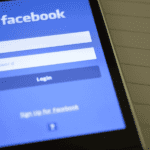Why are business cards important? In today’s tech-driven world, where people have so much information at their fingertips, it is natural to question the value of standard business cards. However, despite all the advancements in technology, business cards remain essential. No level of automation seems likely to replace them.
Many company officials carry business cards in their pockets and hand them out when meeting potential clients. Business cards help promote a business at business meetings, trade fairs, or seminars. Even in 2024, they are a crucial marketing tool for entrepreneurs.
A well-designed card can significantly boost your business. Both traditional paper cards and digital versions can increase your visibility in the market, strengthen your brand, build connections, establish credibility, and ultimately drive sales. This article will explore the importance of business cards in detail.
Why Are Business Cards Important?
In a digital world, offline marketing adds credibility. It proves that companies are genuine, which is why offline marketing is crucial in business. It is why business cards have existed since the 15th century.
Business cards also play a vital role in a company’s branding efforts. They carry personal details like email address, name, and phone number. Business cards can also be designed to reflect the company and its values. Everything from color choices to logo placement and font selection can help create a long-lasting impression on the recipient.
Business cards can suggest the potential quality of a company’s services or products to clients. Besides, 72% of people form opinions about an individual or company based on their business cards. They believe a lot of time and effort goes into creating them.
Business cards also provide security since they include people’s direct contact details, making recipients feel they receive a personal and exclusive service. While a “Contact Us” webpage on a site can display the same information, it often feels impersonal and lacks warmth. It does not make the recipient feel valued or cared for.
Even though we live in the digital age, the internet isn’t always available. Sometimes we cannot get online, and opportunities to connect with somebody can slip away. But exchanging a business card doesn’t require any device or internet connection.
Business cards are the simplest and quickest way to share contact information with somebody or receive theirs. With a simple flick of your wrist, you can give your contact details to another professional.
8 Reasons Behind The Importance of Business Cards
Business cards hold their value even in a tech-driven world. They serve as an extension of your brand, help you connect with clients, and add credibility to your business. Whether you’re just starting or already established, business cards are an effective and affordable marketing tool that offers many advantages to your business.
From effortlessly sharing your contact details to shaping how potential customers view your business, here are eight reasons why business cards are still important today.
-
Shares Contact Details in The Easiest Way
Despite the speed and promises of the modern age, business cards remain the easiest way to share important business details. A business’s contact details are important to clients, and business cards include all of your contact information, such as phone number and email address.
The recipient can easily store the card in a desk drawer or wallet. In this way, these business cards make finding a company’s information easy. Some digital devices, such as Android phones and iPhones, can share information with other phones. However, this only works if both devices are compatible with each other.
Not all potential clients will have phones that can connect this way. Because of this, physical business cards are more crucial for every business than digital ones.
-
Creates Human Connection
When exchanging your business card with somebody else, you can make eye contact and consider shaking hands based on social distancing practices. This exchange of cards is a traditional way of greeting.
In fact, in Japan, business card exchanges are highly respected. It is a ritual called “meishi.” A guide to living in Japan states that “business card etiquette is among the most crucial parts of Japanese business culture.”
You must know the correct order when handing out business cards—hold your business card in the right hand, bow, and offer a greeting. Then, accept the other person’s business card with both hands, bow, hold it no higher than your chest, and examine it carefully.
-
Increases Professional Reputation
Having a business card indicates to people that you’re experienced in networking.
It shows that you are experienced and that you or your business took the time to create something meaningful so you don’t waste others’ time. It also indicates that you value efficiency and time.
A business card also reflects that you believe in your company and have put thought into its branding and image. It features images, graphics, and logos, which all work together to create a clear picture of you and your company. Custom business cards enhance your credibility by showing that you are reliable and innovative in your business approach.
In addition, they add a sense of seriousness and legitimacy to your business relationships. Keep in mind that the quality of your business cards reflects the quality of your work.
-
Assists People in Remembering You
In today’s world of information overload, it takes effort to remember everything. Whether you meet many people daily or not, remembering people’s faces and names can still take time and effort. On average, everyone has around 50,000 to 70,000 thoughts each day. Given this, hoping everybody remembers your phone number, name, and email address is unrealistic.
A business card helps solve this issue. It removes the pressure for both people to remember each other’s details, and people value this simple but thoughtful gesture.
Sometimes, we might think we’ll need someone’s assistance in the future. We want a method to remember those people without constantly thinking about them. That is when having their business card comes in handy. Furthermore, business cards help remind people to schedule an appointment, visit your shop, or check out your services and products online.
-
Makes It Easy for People to Refer Your Business
Business cards should include the skills you or your company offer. Simply providing your contact information and company name isn’t enough. If your business card highlights your additional skills, it can help generate referrals. When the recipient knows about your skills, they can recommend your company to others who need those skills.
It is important because you meet people from various backgrounds who might refer your company. Whether you are a graphic designer or a landscape gardener, giving referral cards to satisfied customers makes it easy for them to share your details with others.
Remember, 88% of people trust word-of-mouth referrals more than other forms of advertising. Business cards can help you take advantage of this. Remember that 88% of individuals trust word-of-mouth referrals more than other types of advertising. Business cards help you make the most of this.
Ensure your card design is compelling enough to encourage referrals. Therefore, hire a skilled graphic designer to create an impactful design. Use logos, colors, images, and text wisely to express your brand message effectively. If the recipient likes your card, your probability of getting more referrals increases.
-
Builds Trust
In a highly competitive market, clients must trust a business and its products. If they don’t believe in what a company offers, they won’t purchase. Business cards can help build that trust. The warmth and personal connection during the business card exchange help create a sense of trust.
In Japan, the build quality of the business card and your participation in the exchange ritual help create trust. In Hong Kong, having a business card ready when somebody offers theirs is crucial to enhancing your credibility. A professional and well-designed business card can assist in building trust in any culture.
-
Serves As A Marketing Tool
A custom business card serves as a powerful marketing tool. Although email marketing, SEO, and other digital marketing methods generate leads and possible clients, business cards are often more effective. It’s because business cards involve an in-person meeting when you share them.
Meeting someone face-to-face makes it easier to leave a strong impression than relying on technology or emails to do that for you. When you meet a potential client at an industrial conference or an airport lounge, simply give them your business card. Always keep some cards in your wallet to hand out to potential leads wherever you find them.
-
Increases Brand Awareness
Like a sponsorship banner for an occasion, business cards provide a chance to promote your brand. While many design options are available for business cards, your card should reflect your brand. You must choose fonts, colors, and card finishes that align with your brand’s identity.
Adding your logo to your business card helps make a consistent brand experience easy to recognize and remember. Your logo should stand out on a card’s one side. Consider including your brand’s slogan or tagline as well. It not only explains your business works but also distinguishes you from competitors.
Enhance your brand consistency by using the same fonts and color palette across all marketing materials, which include your business card.
Final Words
Why are business cards important? In short, the importance of top-quality business cards in the business world is undeniable. These small cards do more than share your contact details; they represent your brand’s values, identity, and commitment to quality.
Investing in premium business cards with features such as foil embossing or stamping is an investment in your brand’s future. Business cards are crucial in building professional relationships, even in our digital age. They serve as a reminder of a personal interaction and a tangible connection in a world filled with digital contacts.
The psychological impact and the potential for more business opportunities make choosing quality over quantity an intelligent decision. Business cards are a powerful marketing tool for building trust, establishing your brand, and sending a clear message to potential clients.



